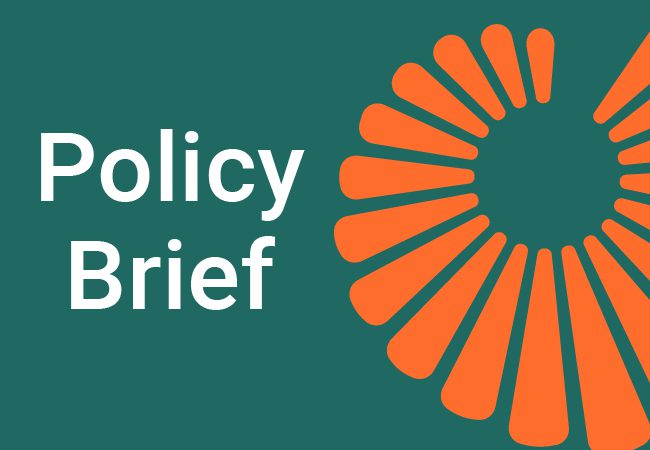Children Rights Alliance: Child Poverty Monitor 2022

The Child Poverty Monitor is a new annual publication by the Children’s Rights Alliance. The Monitor will follow Government progress on reducing the number of children in poverty, outline best practice solutions and highlight areas of concern including food poverty, income inadequacy, education inequality and the cost of living. The Children’s Rights Alliance ensures children’s rights are respected and protected in laws, policies, and services.
The report includes recommendations for the Government on the early childhood education and care (ECEC) sector could be improved.
Supporting families on low incomes
The report calls for ECEC to be poverty proofed. It calls for all families, particularly those in vulnerable situations and disadvantaged areas, to have access to ECEC. The OECD states that if ECEC is not sufficiently subsided, fewer children from disadvantaged backgrounds participate in it. The report urges the State to provide free, or nearly free, access to ECEC for parents living in consistent poverty. This would include those currently on welfare payments or in low-paid jobs. The Monitor notes this as the single most important measure in addressing child poverty based on the evidence that what works is providing education or training or quality employment alongside quality early learning and care services.
The report notes that there is a need to provide practical supports to marginalised families. For example, Traveller organisations have found that families are not aware of the subsidies for ECEC or how to apply for them. Even with information on the available supports, families often face other barriers such as low literacy levels or being unable to access the internet, both of which are needed to complete the necessary paperwork.
The report calls for thought to be given to using available European Social funds to implement the Child Guarantee to invest in community workers to support Traveller families in accessing ECEC for their children.
Tackling Disadvantage
The report outlines short to medium-term solutions using existing mechanisms that could help disadvantaged children. These include adopting new eligibility criteria to access higher levels of subsidisation. New criteria could include using the Medical Card as an important lever for access to early years and school-age services. Qualifying for a Medical Card can mean that child could gain access to other benefits including free school transport, no State exam fees and some help with purchasing schoolbooks.
The report also suggests changes to how the National Childcare Scheme (NCS) is calculated. Child Benefit and child maintenance are included when calculating reckonable income as part of NCS. Including Child Benefit as part of reckonable income pushes a single parent, working 19 hours per week, over the income limit to qualify for the maximum childcare support subsidy. The report notes that this approach lacks policy coherence as the government wishes to support more single parents in employment but poverty rates among working single parents are increasing.
Budget Recommendations
Along with suggested changes to NCS, subsidy eligibility criteria and how to improve access for marginalised groups including the Traveller community, the report also makes other recommendations that could be included in Budget 2023. It proposes that, in the short term, Ireland should be brought in line with the OECD average of 0.7% of Gross Domestic Product (GDP) investment in early years education. Early Childhood Ireland has called for state spending on early years and school-age care to reach at least 1% of GDP by 2025. The report also sets a longer-term objective to move closer to Iceland, the world leader, which invests 1.8% of GDP.
The report also suggests increasing NCS subsidies by 10% to ensure that all families can benefit from sustained investment in ECEC. Early Childhood Ireland’s 2023 Budget Submission also recommends that both universal and targeted subsidies be increased.
If you have any questions regarding this report or Early Childhood Ireland’s Budget 2023 submission, please contact our policy team.









